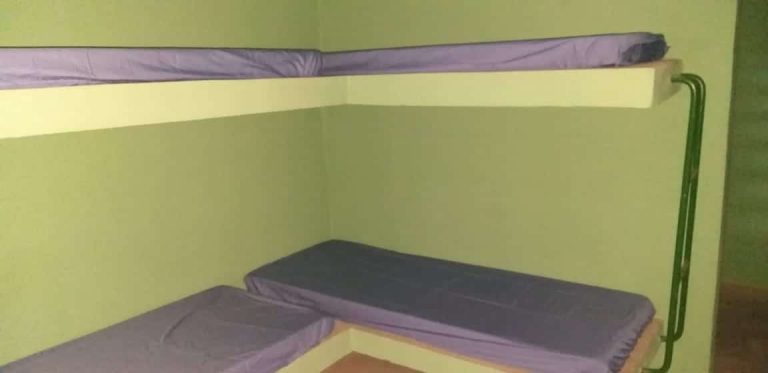24 de noviembre 2022

European Concern over Lack of Academic Freedom in Nicaragua

PUBLICIDAD 1M
PUBLICIDAD 4D
PUBLICIDAD 5D
“It is the first time we have encountered such a total refusal to cooperate,” says a UN official

View of a cell at the Evaristo Vásquez prison complex, known as “the new Chipote”. Photo: Taken from El 19 Digital
The United Nations Subcommittee on Prevention of Torture (SPT-UN) declared this Wednesday, November 23, that it has suspended its plan to visit Nicaragua, scheduled for next year, due to the lack of cooperation from the government headed by Daniel Ortega and Rosario Murillo.
“It is deeply regrettable that Nicaragua refuses to cooperate with the subcommittee in the plans to carry out our second visit to the country,” expressed in a statement its president, Suzanne Jabbour.
Jabbour recalled that with the ratification of the Optional Protocol to the Convention Against Torture (OPCAT), Nicaragua agreed to establish an independent national preventive mechanism and to support the subcommittee’s monitoring of detention centers.
“It is the first time that we have encountered such a total refusal to cooperate,” stressed the SPT president, who said that they have sent this “serious matter” to the UN Committee Against Torture.
The Subcommittee’s visit is framed in OPCAT, which was ratified by Nicaragua in 2009, according to information on the Office of the United Nations High Commissioner for Human Rights (OHCHR) website.
The Subcommittee’s mandate allows it to conduct unannounced visits to detention centers and then make recommendations to the authorities so that they establish effective safeguards against torture and ill-treatment of people deprived of their freedom,” it specified.
The United Nations agency announced that it has scheduled visits to Georgia, Guatemala, Kazakhstan, Mauritius, Philippines and South Africa in 2023, in addition to previously announced visits to Croatia, Madagascar and Palestine.
The subcommittee presented a report with recommendations to the Nicaraguan authorities after its first and until now only visit to the country between May 7 and 16, 2014, but thus far the Ortega and Murillo government has kept it in secret and its content are unknown.
“The current situation of people deprived of their freedom in Nicaragua is of serious concern,” says Enrique Font, head of the Subcommittee delegation that visited Nicaragua, according to OHCHR.
“We expect that our findings and recommendations will be used by the Government of Nicaragua to eliminate any form of mistreatment in places of deprivation of freedom and to improve the conditions in which detainees are held,” underscored Font.
The delegation met with representatives from all branches of government, as well as with civil society organizations. During its visits to prisons throughout the country in 2014, it interviewed prison and police personnel, as well as persons deprived of their freedom and their relatives, in a private and confidential manner.
In early August, the Subcommittee’s rapporteur for Nicaragua, Juan Pablo Vegas, said that “the prevention and eradication of torture is not a political option, a humanistic slogan and even less a position of some foreign power that violates the sovereignty of a state.”
During a virtual event, he regretted the way in which the Ortega regime has limited family visits to political prisoners and blocked the International Committee of the Red Cross (ICRC) from ascertaining the health condition of the detainees.
“I would like to remind that Nicaragua has unavoidable obligations in prevention of torture matters,” affirmed Vargas.
The United Nations Committee Against Torture has accused the Ortega dictatorship of subjecting political prisoners to a regime of incommunicado for up to 90 days, while conducting interrogations without the presence of lawyers, in which occasionally there were beatings, threats and sleep deprivation, and denying access to medical services.
According to a report presented at the end of July, the abuses are committed in a regime of “total absence of the separation of state powers” directed at “using criminal law to criminalize dissidence, violate due process and contribute to impunity.”
This article was originally published in Spanish in Confidencial and translated by Havana Times.
Archivado como:
PUBLICIDAD 3M
Confidencial es un diario digital nicaragüense, de formato multimedia, fundado por Carlos F. Chamorro en junio de 1996. Inició como un semanario impreso y hoy es un medio de referencia regional con información, análisis, entrevistas, perfiles, reportajes e investigaciones sobre Nicaragua, informando desde el exilio por la persecución política de la dictadura de Daniel Ortega y Rosario Murillo.
PUBLICIDAD 3D